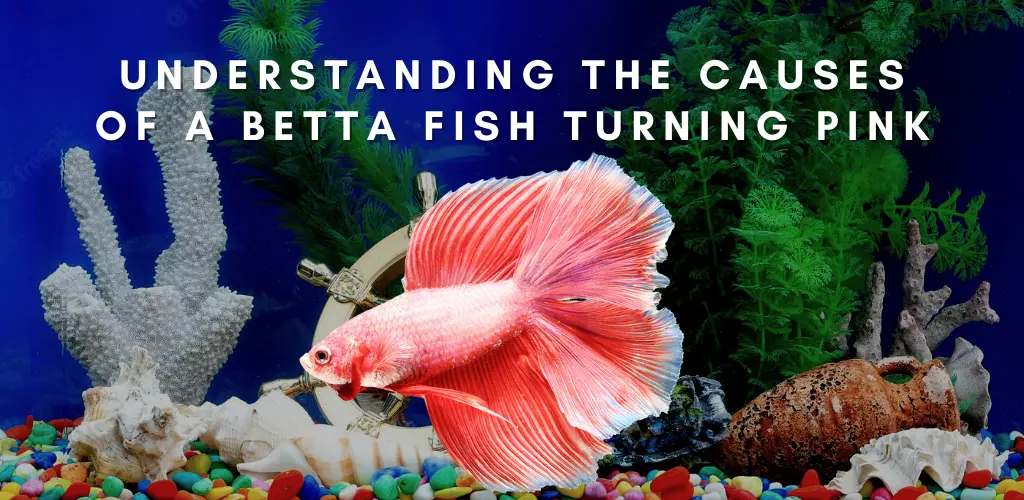Betta fish, also known as Siamese fighting fish, are popular pets for their bright colors and distinctive finnage. While most bettas are known for their vibrant shades of red, blue, and green, it is not uncommon for bettas to turn pink over time. If you have noticed that your betta fish has turned pink, there are a few potential causes that you should consider.
Causes of Betta Fish Turning Pink
Aging
One of the most common reasons that bettas turn pink is simply due to aging. As bettas get older, their colors may fade or change and develop a pinkish hue. This is a natural part of the aging process and is not typically a cause for concern.
Genetics
Another potential cause of pink coloring in bettas is genetics. Some bettas are genetically predisposed to develop pink color over time, regardless of age. If you have a betta that has turned pink and you are not sure why, it is possible that genetics are at play. In this case, there is no treatment for the pink coloring, as it is determined by the betta’s genetics.
Diet
A betta’s diet can also play a role in developing pink coloring. If a betta is not getting enough of the proper nutrients, their colors may fade or change. It is important to provide your betta with a balanced diet that includes a variety of high-quality pellets and frozen or live foods.
Water Quality
Poor water quality can also cause bettas to turn pink. If the water in your tank is not properly filtered or cycled, it can lead to a build-up of toxins that can affect the fish’s color. It is important to test the water in your betta’s tank regularly and to perform regular water changes to ensure that the water is clean and healthy.
Stress
Bettas can also turn pink due to stress. If a betta is experiencing high-stress levels, their colors may fade or change. Various factors, including poor water quality, overcrowding, or environmental changes, can cause stress. It is important to ensure that your betta has a comfortable and stress-free environment to prevent color changes.
How To Treat A Betta Fish Turning Pink?

If your betta fish is turning pink, there are a few steps you can take to try and treat the issue. Here are a few potential treatment options to consider:
- Check your betta’s diet: A betta’s diet can play a role in developing pink coloring. Make sure your betta is getting a balanced diet that includes a variety of high-quality pellets and frozen or live foods.
- Improve water quality: Poor water quality can cause bettas to turn pink. Regularly test the water in your betta’s tank and perform regular water changes to ensure that the water is clean and healthy.
- Reduce stress: Stress can cause bettas to turn pink. Make sure that your betta has a comfortable and stress-free environment, which may involve making adjustments to the betta’s tank or surroundings, such as adding hiding places or decreasing the number of other fish in the tank.
- Consult a veterinarian: If you cannot determine the cause of the pink coloring or if you cannot treat the issue successfully, it may be helpful to consult a veterinarian who is experienced in treating fish. A veterinarian can help diagnose the underlying cause of the pink coloring and recommend a treatment plan.
It is essential to note that in some cases, the pink coloring of a betta fish may be due to genetics or aging and cannot be treated. In these cases, it is important to provide your betta with proper care and a healthy environment to ensure they remain happy and healthy.
Conclusion
In conclusion, a few potential causes for a betta fish turning pink include aging, genetics, diet, water quality, and stress. If you are concerned about the pink coloring of your betta fish, it is important to consider these potential causes and take steps to address any underlying issues. By providing your betta with proper care and a healthy environment, you can help prevent color changes and keep your fish happy and healthy.




Pingback: Does Betta Fish Food Expire? - Betta Fish Advice
Pingback: Betta Fish Stomach Explode: Causes, Treatment And Prevention